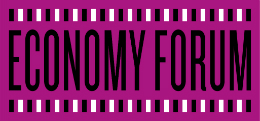
comment
The new populism
Podcast: listen to the debate from the Battle of Ideas 2016.
Britain’s vote to leave the EU, the election of Donald Trump and the high opinion poll ratings of Marine Le Pen’s Front National have led to anxious debate about the rise of populism, inspired by what many regard as a rogues’ gallery of demagogic leaders of rising anti-immigrant and anti-Islamic movements throughout Europe and the US. The declining appeal of traditional parties of both left and right has been apparent for a generation, and now seems to have reached a head, to the consternation of those who see the new populism as a rejection of common sense. At the height of the referendum campaign, the Guardian’s Martin Kettle articulated the exasperation of the political establishment at the evident disaffection of the masses when he described support for Brexit as ‘part bloody-mindedness, part frivolity, part panic, part bad temper, part prejudice’.
Almost invariably, the concept of populism is used in a pejorative way. It is often preceded by the implicitly disparaging adjective ‘right-wing’ and directly linked to notions such as racism, ‘xenophobia’ or ‘Islamophobia’. Yet in the past, populist movements have as commonly had a left-wing as a right-wing character. They have often expressed an inchoate animosity towards a corrupt elite. Such movements are inherently unstable and tend to evolve, according to circumstances, in either a radical or reactionary direction. Recent political phenomena such as Syriza in Greece, Podemos in Spain, the Five Star Movement in Italy, and the successes of Bernie Sanders in the USA and Jeremy Corbyn in the UK, show the complexity of the popular movements that have emerged to fill the vacuum left by the decay of the old politics.
Mainstream politicians and commentators fear the polarisation resulting from the rise of populist movements, but seem unable to engage the public through open debate. Others argue that the upsurge of popular discontent with the stagnant political order points the way towards the revival of democratic politics, and is worth celebrating even if it unleashes uncomfortable sentiments. Are populist movements merely ‘morbid symptoms’ of a decadent political order, or harbingers of a democratic renewal?
SPEAKERS
Nick Cater
executive director, Menzies Research Centre, Australia; columnist, The Australian
Ian Dunt
editor, Politics.co.uk; political editor, Erotic Review
Ivan Krastev
chairman of the Centre for Liberal Strategies in Sofia; permanent fellow at the Institute for Human Sciences in Vienna
Jill Rutter
programme director, Institute for Government
Bruno Waterfield
Brussels correspondent, The Times; co-author, No Means No
To keep up with the IoI’s podcasts, add our RSS feed to your favourite podcast app.

comments archive

what's happening next

Tilting at windmills: are there downsides to a ‘green recovery’?
Monday 23 November, 7pm (UK time), online, via Zoom




CONTACT Rob Lyons
BIOGRAPHY
CONTACT BY EMAIL